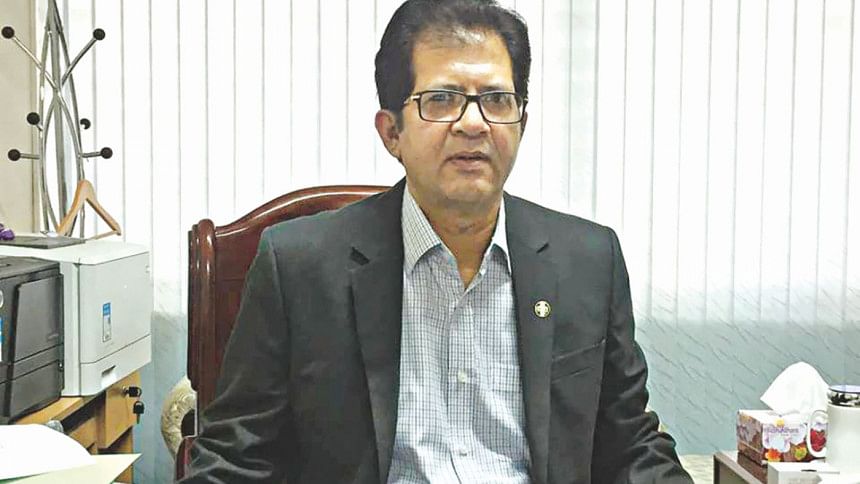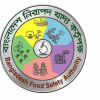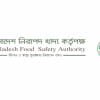Stepping up fight for safe food

People can expect a strong grip on contaminating food and its marketing as Bangladesh Food Safety Authority is gearing up its activities in a coordinated manner to ensure food safety from farm to plate.
Since its establishment on February 2, 2015, the BFSA has set up 71 safe food courts across the country, framed six rules, including on labelling, additives, sampling and testing, and formed eight technical committees on various aspects of food safety.
The BFSA, which has a 33-member central coordination committee, has already assigned 725 sanitary inspectors of the food department and some city corporations as safe food inspectors.
"Still now we have certain challenges in terms of skilled manpower and logistics, but we have come a long way. We hope to better ensure food safety in the days ahead," said BFSA Chairman Mohammad Mahfuzul Hoque in an exclusive interview with The Daily Star at his office on the eve of the first ever Safe Food Day today.
The BFSA is observing the day, commemorating its founding day three years ago, to create mass awareness among people and bring together the industries, academics and regulators so that they all can contribute to one goal -- ensuring safe food for all and everywhere.
Speaking on the challenges of food safety, Mahfuzul said major concern was now the presence of heavy metals like lead in food. These metals in food may come from air, water or soil, he said.
"Indiscriminate disposal of used fuel oil, batteries and industrial waste could be the sources of contamination. From there, the heavy metals may enter the food chain," he added.
A 2016 study by the Atomic Energy Commission found the presence of lead in sweetwater fish, while recently excessive levels of lead and cadmium were found in imported Chandana Hilsa fish. Even, excessive level of lead was found in some branded milk powder recently, he said.
Also, studies in recent years found the presence of antibiotics and growth hormones in poultry, while lead in poultry feed, he added.
"Sometimes, the contamination is purposeful and sometimes, it happens due to ignorance of those involved in production and processing of food," Mahfuzul mentioned.
He said while there would be lab tests of suspected products, the authority was also taking proactive measures, including training of restaurant workers, capacity building of laboratories and government departments involved in monitoring food safety at the field levels.
The BFSA is engaging the industries, business bodies, farmers so they can follow good production, manufacturing and preservation practices, he said.
Initially, the BFSA is signing memorandums of understanding with the departments concerned and specifying their roles and responsibilities.
Mahfuzul said the BFSA already inked MoUs with the departments of livestock, fisheries, food, agricultural extension and Bangladesh Fish and Shrimp Foundation.
"Primarily, we will sign MoUs with 18 government agencies and 486 city corporations and municipalities," he said.
These agencies and local government bodies have their own mandate of inspecting food safety in their own territories and jurisdiction. The BFSA, as the central authority, will specify their responsibilities in the MoUs.
"We will monitor if the organisations concerned are playing their due roles. We will identify the gaps and address those. We will help increase their capacity in need and check any overlaps," said Mahfuzul.
A major challenge the BFSA is facing now is the lack of accredited laboratories for various types of food safety tests. It has so far identified 50 government and autonomous food test laboratories, and most are not accredited. Some of them have equipment, but not skilled manpower, while some have manpower, but not good equipment, he added.
"Therefore, we are facing problems because the businesses are saying this or that lab test result is not acceptable as it is not accredited and so on," said BFSA chief Mahfuzul.
So, he said the BFSA was trying to build capacity of those laboratories.
Besides, the BFSA has initiated a project to set up its own accredited laboratory that will be considered as the reference laboratory. Test results of this lab will be considered final, he added.
Food safety management requires highly technical and skilled manpower, but Bangladesh has a huge shortage of it, he said.
Therefore, Bangladesh Agricultural University is going to start a four-year course on food safety management and regulatory affairs in collaboration with Ireland's Dublin Institute of Technology next year with the support of the UN's Food and Agriculture Organisation, he said.
"We want to work in a more proactive way, instead of reactive way," Mahfuzul mentioned.

 For all latest news, follow The Daily Star's Google News channel.
For all latest news, follow The Daily Star's Google News channel. 







Comments